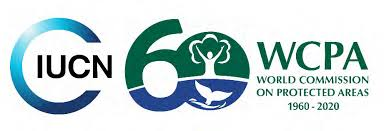Lately, Dr. Zhou Jinfeng, the Secretary-General of China Biodiversity Conservation and Green Development Foundation (CBCGDF) has been elected to become one of the five executive committee members of the Marine Connectivity Working Group (MCWG) of the IUCN-WCPA Connectivity Conservation Specialist Group (CCSG).
IUCN WCPA Connectivity Conservation Specialist Group links landscapes, reducing fragmentation and enabling migratory flows essential to a functioning and resilient system.
Dr. Zhou’s credentials and experience are impressive and bring skills that are important to help lead and guide the MCWG in this challenging time and field of conservation.
Dr. Zhou leads CBCGDF dedicated to the expertise relevant for the following objectives of MCWG:
1. Advancing marine connectivity science.
CBCGDF is dedicated to protecting biodiversity in the vast oceans and maintaining marine habitats and ecological balance. For instance, CBCGDF works with Ocean Care and Wild Migration, two of the world’s leading international organizations, to study data evidence and scientific evidence for marine noise pollution matter and is committed to providing marine pollution solutions recommendations that can help address underwater noise pollution issue. In order to protect the endangered coral species in the South China Sea, CBCGDF has reached a cooperation intention with the South China Sea Tropical Marine Biology and Disease Research Institute to jointly establish the South China Sea Coral Protection Base.
2. Advancing marine planning for connectivity.
Dr. Zhou launched the “Ecological Belt and Road” initiative (EBRs) in accordance with China’s “One Belt, One Road” initiative. This also includes the planning of protection of migratory species in areas along the EBRs that connect with the oceans; the analysis of social responsibilities for the Chinese areas along the coast and the “going out” enterprises in other coastal countries, proposing research and development strategies to provide advice and services in place; and working closely with relevant international conventions together.
3. Advancing marine governance, law and policy for connectivity.
CBCGDF has proposed to the NPC and CPPCC two sessions conferences in China to provide policy recommendations on the protection of tidal wetlands and restrictions on reclamation. The recommendations to the two sessions on the regulations of marine noise pollution should be formulated as soon as possible, have been paid special attention and guidance by the committee members. I have been working hard and hope to develop policy measures, corporate social responsibility and the development of all stakeholders’ codes of conduct, through collaboration with relevant government departments.
4. Providing technical outreach and support.
CBCGDF collaborates with The China National GeneBank to carry out genetic sequencing on representative marine species such as harbor seals to protect genetic diversity.
Various of relevant international conventions (CMS, CITES, UN related conventions as CBCGDF has been accredited by the UN Environment Assembly), organizations partners, international environmental lawyers, etc.
Enormous networks resources, including universities/research institutions, local government departments, China Conservation Areas (CCAfa system innovatively established by CBCGDF, currently there are more than 120 CCAfa sites in China) heads and their relevant networks, mass civil volunteers’ enforcement and their units.
Dr. Zhou has worked with experts from Guangdong Ocean University and Hainan Marine Industry Engineering Center on topics such as artificial breeding of corals and restoration of coral reefs. Through complementary advantages, ecological protection of the oceans, restoration of habitats, conservation of corals, to construct marine pasture and develop the industry together, and to establish a special fund to achieve an organic combination.
CBCGDF supports the establishment of “China Conservation Areas” in coastal areas to protect the habitats of migratory birds and marine life.
CBCGDF pays close attention to the development of oil tankers in the waters of China after the accident and sinking. In order to prevent marine ecological disasters, CBCGDF will send letters to relevant departments to timely understand and monitor the corals and other species in the sea area, and apply for participation in subsequent environmental restoration and protection; at the same time, through the tunnel of filing environmental public interest litigation (EPIL) cases to promote the resolution of the incident, and cause the attention of the world.
To support IUCN's contribution to the post-2020 biodiversity framework, the IUCN WCPA Connectivity Conservation Specialist Group will initiate the collection and compilation of research and input and provide the rule of thumb of the integration of “connectivity” protection into marine protected area network design.

(Photo credit: conservationcorridor.org)

(Photo credit: iucn.org)
By / Niu Jingmei
